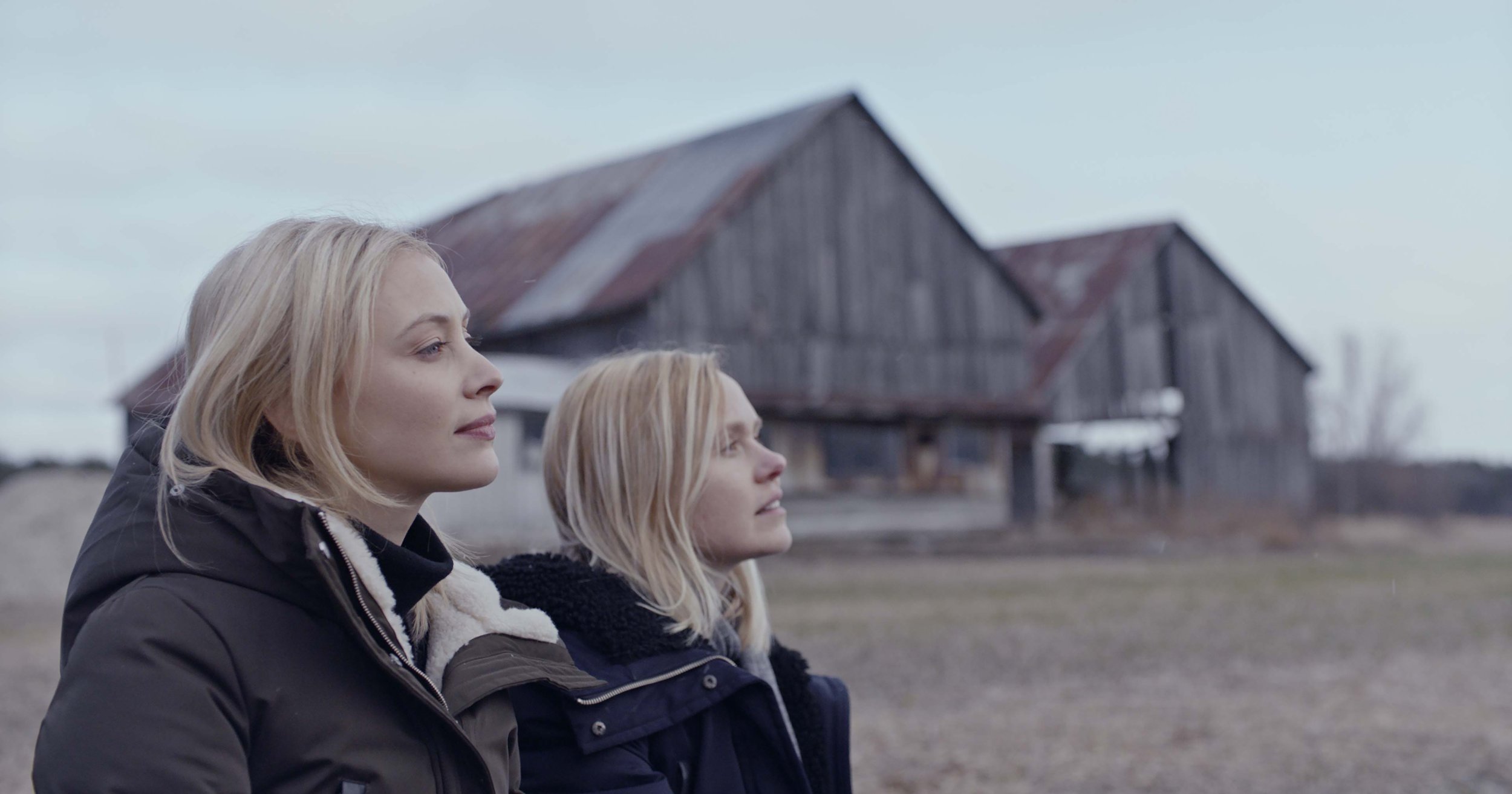All My Puny Sorrows: 'To Be or Not to Be' Remains the Question in Ambitious Adaptation of Toews Novel
By Jim Slotek
Rating: B
It’s no slight on Michael McGowan’s All My Puny Sorrows to say it makes me want to read the quasi-autobiographical Miriam Toews novel on which it’s based to find out what the film might be missing.
It’s a fact of life that a novel about the right to die can’t be represented in depth in 105 minutes. But a compelling essence remains in this story about two sisters from a Manitoba Mennonite community - one with a mess of a life who nonetheless wants to live, the other, blessed with a seemingly perfect life, who wants the opposite.
Sarah Gadon and Alison Pill in All My Puny Sorrows
All My Puny Sorrows opens with a suicide, one that turns out to have generational impact, as a man calmly waits on the tracks for a train to end his life (oddly taking off his glasses so they don’t get broken). The man is Jake Von Riesen (Donal Logue), the patriarch of a family we meet years after the fact.
The dramatic standout of the lot is Yoli (Alison Pill), an aspiring but struggling writer, fresh off a failed marriage, also struggling also to get along with her teenage daughter (Amybeth McNulty), and involved in a loveless and listless rebound relationship.
Read our interview with the director and stars of All My Puny Sorrows
At the other end of life’s inequitable unfolding is Elf (Sarah Gadon), Yoli’s sister, an acclaimed concert pianist who travels the world taking bows while her passionately devoted husband attends to her needs.
Both Yoli and Elf have long ago escaped the social straitjacket of their solidly religious community. But Elf’s battle with depression, apparently inherited, leads her to a suicide attempt, the aftermath of which brings both sisters back “home.” There, they reconnect with their emotionally frozen mother (Mare Winningham), who’s conflicted over having ignored the “do not resuscitate” demand in her daughter’s suicide note.
“Why live?” seems like a counter-intuitive argument, but it’s at the base of the two sisters’ reunion, one in which Yoli seems reluctantly inclined to assist her sibling’s quest for assisted suicide if she can be convinced it’s the right thing to do.
If the answers are on the pages of Toews’ novel, they are merely hinted at in the film. The family seem a poor fit in their religiously doctrinaire town, educated and prone to quote classic literature (the title references a Coleridge poem), and their Mennonite connection was apparently severed when Elf chose a worldly existence as a musician.
Did they leave behind comforting spiritual certainty that might have averted their family tragedies? Comedian Boyd Banks has a cameo as an almost funereal town elder who expresses the community’s willingness to take their lost flock back in their arms. His portrayal is grimly funny in its joylessness.
What All My Puny Sorrows does bring to Yoli and Elf’s life-or-death argument is mood. Flashbacks, rich, flowery dialogue, committed performances and a seemingly, cold barren landscape (North Bay filling in for rural Manitoba).
In the end, All My Puny Sorrows is an audacious film storytelling project, one that can’t help but fall short despite the effort. Life’s like that.
All My Puny Sorrows. Directed by Michael McGowan from the novel by Miriam Toews. Starring Alison Pill, Sarah Gadon and Mare Winningham. Opens in theatres Friday, April 15.


